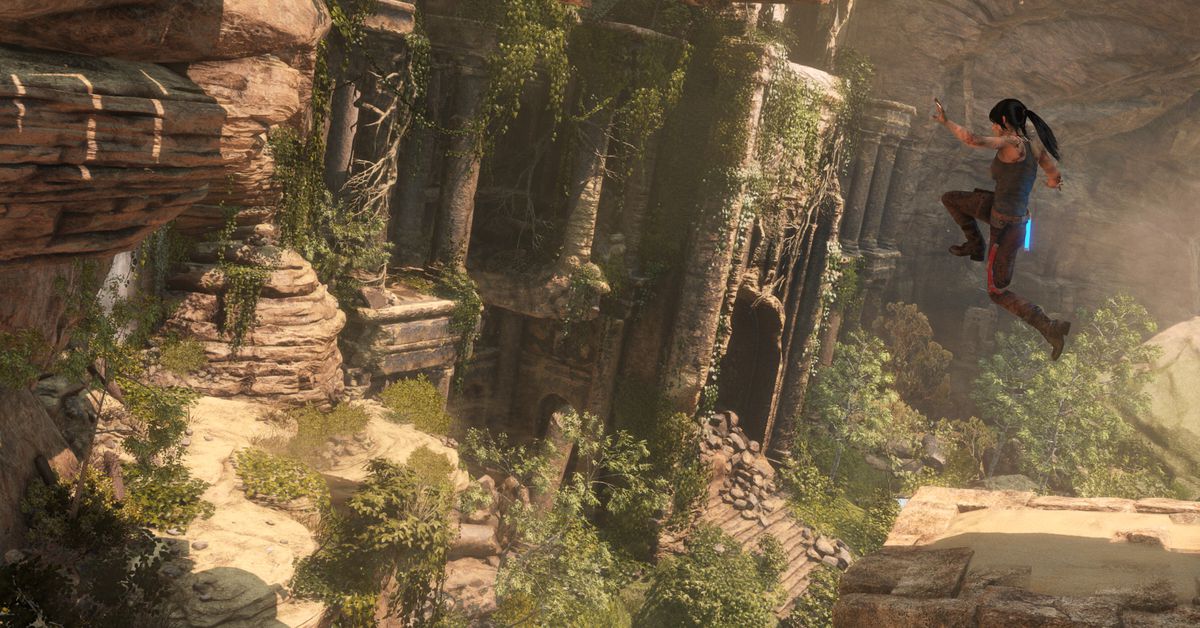It’s been more than a decade since Crystal Dynamics, the developer best known for the Tomb Raider series, first introduced players to its reimagined take on Lara Croft. 2013’s Tomb Raider painted Lara as someone capable of adapting and overcoming nearly any situation while maintaining a level of emotional depth and self-awareness, a quality the game’s sequels would go on to further explore.
The original was an excellent game that I’ve completed on no fewer than three occasions, and while her most recent outing, 2018’s Shadow of the Tomb Raider, has its merits, I still stand by 2015’s Rise of the Tomb Raider as the most engaging and interesting version of Lara Croft for how it emphasizes her vulnerability. The result is a story that combines all the hallmarks of what you’d expect from a great Tomb Raider game: suspenseful supernatural elements and a thrilling and romantic notion of archaeology, all tied together with an intriguing and surprisingly emotional story.
Image: Crystal Dynamics/Square Enix
Following the events of the first game, Lara is still traumatized by her trial by fire on the island of Yamatai and her father’s recent disappearance. Her quest to find her father and restore her family’s legacy leads her to the frigid peaks of Siberia and into the path of Trinity, a “Knights Templar meets military contractor” organization with a pseudo-religious goal of world domination. Unfortunately, this places Lara alone in the unique position to foil their plot, by saddling her with a truth that no one else will believe.
Lara fully understands the gravity of the situation, but never lets this inflate her ego. Instead, she’s more preoccupied with the specter of death that inevitably follows her attempts to do the right thing. Lara can never fully atone for how her choices led to the deaths of so many close to her in the past, regardless how well equipped or tough she is. This theme is so pervasive, it even echoes in Rise’s gameplay by presenting us with a Lara who needs to be more resourceful and cunning to overcome her environment.
:no_upscale()/cdn.vox-cdn.com/uploads/chorus_asset/file/25206485/ss_2b612bfa62d920b061e900e1f7a975a2de6729ec.1920x1080.jpg)
Image: Crystal Dynamics/Square Enix
Rise of the Tomb Raider doesn’t quite elevate Lara to the level of apex predator we get in Shadow of the Tomb Raider, but she’s clearly far more capable than she was in her first adventure. The result is a character in the midst of becoming the Lara Croft known to players around the world, a more confident and prepared protagonist who can still be humbled. This version of Lara shines when she’s on the back foot, and Rise of the Tomb Raider does everything it can to keep her off balance with a more capable foe and a relentlessly adversarial environment.
I’ll admit that on its standard difficulty, Rise of the Tomb Raider doesn’t present much of a challenge. Because of that, I consider Survivor Mode, the hardest difficulty, to be the definitive Tomb Raider experience. While you won’t succumb to starvation or dehydration, at this difficulty, the player’s health doesn’t regenerate, checkpoints are disabled, and foes are far more deadly. As if that wasn’t enough, by default, the game also will not highlight interactable items in the environment. While you can turn on the “Survival Instincts” at any time during your playthrough, dialing down the difficulty isn’t an option, which further reinforces that there’s no going back once the journey starts.
:no_upscale()/cdn.vox-cdn.com/uploads/chorus_asset/file/25206488/ss_4ef0868ecfc6b19bc1af18b88cabe33fe8147cf7.1920x1080.jpg)
Image: Crystal Dynamics/Square Enix
This dialed-up difficulty has the benefit of making the game more immersive and forcing you to carefully consider and prepare for every encounter. A handful of bad guys normally wouldn’t be an issue, but when just a couple of bullets can put Lara in the ground, things get a little more tense. For an added challenge, I like to rely almost exclusively on stealth kills and Lara’s trusty bow during combat, resorting to firearms only when absolutely necessary.
Rise of the Tomb Raider still keeps some of the Metroidvania elements of its predecessor to guide you along its critical path, while the world feels more open and encourages exploration of its various regions. This is further reinforced by a more robust crafting system, which forces you to scrounge and hunt for many of the materials you need to upgrade your gear. The tomb puzzles hidden throughout the world aren’t quite as challenging as those found in Shadow of the Tomb Raider, but still do a great job at shaking things up between scavenging and combat encounters.
2013’s Tomb Raider did a fantastic job of establishing Lara as a character, and Shadow of the Tomb Raider makes for a fitting capstone to the latest trilogy. But for me, Rise of the Tomb Raider was the peak of Crystal Dynamic’s trilogy. Beyond its challenging gameplay, Rise offers a robust and complex narrative that shows us that the personality archetype of badass archeologist doesn’t have to constantly revolve around snappy one-liners.
Rise of the Tomb Raider is available on Xbox Game Pass.

